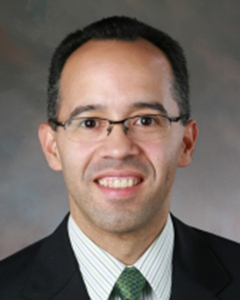Why Adult Acne is on the Rise
Most of us have had at least one pimple. As a teenager, it’s as much of a rite of passage as getting your driver’s license or going to prom.
But as an adult, you never expect to deal with acne. The appearance of zits anywhere on your face when you’re over 30 causes just as much anxiety as it did when you were a teenager.
However, a new survey finds that adult acne isn’t all that unusual. Ninety percent of specialists surveyed said they have seen an increase in the number of adults seeking treatment for acne in the last year. While 50 percent of teenagers develop acne, the survey found that about 33 percent of people seeking treatment for acne were adults age 30-39 and that most of them were women. Acne also affects people beyond this age group, as 26 percent of patients age 40-49 also have acne.
The Hormone Factor
So, what’s causing this surge? It’s hard to say, but biology plays an significant role.Acne develops when the body produces more oil in the hair follicles. This leads to clogged pores and the development of an infection in the skin that materializes in the form of a pimple. Acne is directly linked to the impact male hormones have on the skin. In my practice, I see a lot of patients with polycystic ovary syndrome, a condition that causes an imbalance of female hormones. Women with this condition have a higher concentration of male hormones (also called androgens), and we tend to see a higher rate of adult acne in these cases.
Other risk factors include stress, family history, air pollution, using certain soaps and detergents and poor diet (if you eat a lot of junk food, this could lead to breakouts.) Drinking a lot of milk also may cause acne because milk has natural hormones in it that increase that amount of androgens in your body. Some medications, such as oral or injected steroids and anti-seizure drugs, also may worsen acne. Your line of work also could contribute to this skin condition. Construction, shipyard and power plant workers, for example, may be exposed to industrial products that have harsh effects on their skin.
What You Can Do
First, don’t panic if you see a few pimples. As the survey shows, adult acne is pretty common.If you begin to develop acne, practicing a good skin care regimen can help to keep it under control. Wash your face twice a day with a gentle cleanser and avoid oil-based skin or facial products that could clog your pores. Look for a label that says non-comedogenic or non-acnegenic on your skin care products, which means that the product won’t clog your pores or cause breakouts. And though it’s tempting, never squeeze or pop pimples. This could spread the infection and make your acne worse.
You shouldn’t be embarrassed by adult acne, because it happens to a lot of us. If any of the approaches I mentioned don’t work, visit a dermatologist to discuss antibiotic therapy or other treatment options that minimize breakouts and improve the appearance of your skin.


